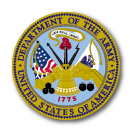PART 201 - FEDERAL ACQUISITION REGULATIONS SYSTEM
SUBPART 201.1 —PURPOSE, AUTHORITY, ISSUANCE
201.106 OMB approval under the Paperwork Reduction Act.
201.109 Statutory acquisition-related dollar thresholds – adjustment for inflation.
201.201 Maintenance of the FAR.
201.201-70 Maintenance of Procedures, Guidance, and Information.
SUBPART 201.3 —AGENCY ACQUISITION REGULATIONS
201.303 Publication and codification.
201.304 Agency control and compliance procedures.
SUBPART 201.4 —DEVIATIONS FROM THE FAR
201.403 Individual deviations.
SUBPART 201.6 —CAREER DEVELOPMENT, CONTRACTING AUTHORITY, AND RESPONSIBILITIES
201.603 Selection, appointment, and termination of appointment for contracting officers.
201.670 Appointment of property administrators and plant clearance officers.
(1) The defense acquisition system, as defined in 10 U.S.C 2545, exists to manage the investments of the United States in technologies, programs, and product support necessary to achieve the national security strategy prescribed by the President pursuant to section 108 of the National Security Act of 1947 (50 U.S.C. 3043) and to support the United States Armed Forces. (2) The investment strategy of DoD shall be postured to support not only the current United States armed forces, but also future armed forces of the United States. (3) The primary objective of DoD acquisition is to acquire quality supplies and services that satisfy user needs with measurable improvements to mission capability and operational support at a fair and reasonable price. The FAR and the Defense Federal Acquisition Regulation Supplement (DFARS) also apply to purchases and contracts by DoD contracting activities made in support of foreign military sales or North Atlantic Treaty Organization cooperative projects without regard to the nature or sources of funds obligated, unless otherwise specified in this regulation. The DFARS and the DFARS Procedures, Guidance, and Information (PGI) are available electronically via the World Wide Web at http://www.acq.osd.mil/dpap/dars/index.htm. See PGI 201.106 for a list of the information collection and record keeping requirements contained in this regulation that have been approved by the Office of Management and Budget. In accordance with 41 U.S.C. 1304, a new requirement for a certification by a contractor or offeror may not be included in the DFARS unless— (1) The certification requirement is specifically imposed by statute; or (2) Written justification for such certification is provided to the Secretary of Defense by the Under Secretary of Defense (Acquisition, Technology, and Logistics), and the Secretary of Defense approves in writing the inclusion of such certification requirement. (a)(i) 41 U.S.C. 1908(d) requires the adjustment for inflation of all statutory acquisition-related dollar thresholds in the DFARS be applied to contracts and subcontracts without regard to the date of award of the contract or subcontract, except thresholds based on the Wage Rate Requirements statute, the Service Contract Labor Standards statute, or established by the United States Trade Representative pursuant to the Trade Agreement Act, which are not escalated by the statute. (ii) Section 814(b) of the National Defense Authorization Act for Fiscal Year 2012 (Pub. L. 112-81) requires that the threshold established in 10 U.S.C. 2253(a)(2) for the acquisition of right-hand drive passenger sedans be included in the list of dollar thresholds that are subject to adjustment for inflation in accordance with the requirements of 41 U.S.C. 1908, and is adjusted pursuant to such provisions, as appropriate. (d) A matrix showing the most recent escalation adjustments of statutory acquisition-related dollar thresholds is available at PGI 201.109 . (a) DoD peer reviews. (1) The Office of the Director, Defense Procurement and Acquisition Policy, will organize teams of reviewers and facilitate peer reviews for solicitations and contracts, as follows using the procedures at PGI 201.170 — (i) Preaward peer reviews for competitive procurements will be conducted in three phases for all solicitations valued at $1 billion or more; (ii) Preaward peer reviews for noncompetitive procurements will be conducted in two phases for new contract actions valued at $500 million or more; and (iii) Postaward peer reviews will be conducted for all contracts for services valued at $1 billion or more. (2) To facilitate planning for peer reviews, the military departments and defense agencies shall provide a rolling annual forecast of acquisitions that will be subject to DoD peer reviews at the end of each quarter (i.e., March 31; June 30; September 30; December 31), to the Deputy Director, Defense Procurement and Acquisition Policy (Contract Policy and International Contracting) via email to osd.pentagon.ousd-atl.mbx.peer-reviews@mail.mil. (b) Component peer reviews. The military departments and defense agencies shall establish procedures for— (1) Preaward peer reviews of solicitations for competitive procurements valued at less than $1 billion; (2) Preaward peer reviews for noncompetitive procurements valued at less than $500 million; and (3) Postaward peer reviews of all contracts for services valued at less than $1 billion. (c) The composition and operation of the DAR Council is prescribed in DoD Instruction 5000.35, Defense Acquisition Regulations (DAR) System. (d)(i) Departments and agencies process proposed revisions of FAR or DFARS through channels to the Director of the DAR Council. Process the proposed revision as a memorandum in the following format, addressed to the Director, DAR Council, OUSD(AT&L), 3060 Defense Pentagon, Washington, DC 20301-3060; datafax (571) 372-6094. I. PROBLEM: Succinctly state the problem created by current FAR and/or DFARS coverage and describe the factual and/or legal reasons necessitating the change to the regulation. II. RECOMMENDATION: Identify the FAR and/or DFARS citations to be revised. Attach as TAB A a copy of the text of the existing coverage, conformed to include the proposed additions and deletions. Indicate deleted coverage with dashed lines through the current words being deleted and insert proposed language in brackets at the appropriate locations within the existing coverage. If the proposed deleted portion is extensive, it may be outlined by lines forming a box with diagonal lines drawn connecting the corners. III. DISCUSSION: Include a complete, convincing explanation of why the change is necessary and how the recommended revision will solve the problem. Address advantages and disadvantages of the proposed revision, as well as any cost or administrative impact on Government activities and contractors. Identify any potential impact of the change on automated systems, e.g., automated financial and procurement systems. Provide any other background information that would be helpful in explaining the issue. IV. COLLATERALS: Address the need for public comment (FAR 1.301(b) and Subpart 1.5), the Paperwork Reduction Act, and the Regulatory Flexibility Act (FAR 1.301(c)). V. DEVIATIONS: If a recommended revision of DFARS is a FAR deviation, identify the deviation and include under separate TAB a justification for the deviation that addresses the requirements of 201.402 (2). The justification should be in the form of a memorandum for the Director of Defense Procurement and Acquisition Policy, Office of the Under Secretary of Defense (Acquisition, Technology, and Logistics). (ii) The public may offer proposed revisions of FAR or DFARS by submission of a memorandum, in the format (including all of the information) prescribed in paragraph (d)(i) of this subsection, to the Director of the DAR Council. The DAR Council is also responsible for maintenance of the DFARS Procedures, Guidance, and Information (PGI). (a)(1) DoD implementation and supplementation of the FAR is issued in the Defense Federal Acquisition Regulation Supplement (DFARS) under authorization and subject to the authority, direction, and control of the Secretary of Defense. The DFARS contains— (i) Requirements of law; (ii) DoD-wide policies; (iii) Delegations of FAR authorities; (iv) Deviations from FAR requirements; and (v) Policies/procedures that have a significant effect beyond the internal operating procedures of DoD or a significant cost or administrative impact on contractors or offerors. (2) Relevant procedures, guidance, and information that do not meet the criteria in paragraph (a)(1) of this section are issued in the DFARS Procedures, Guidance, and Information (PGI). (b) When Federal Register publication is required for any policy, procedure, clause, or form, the department or agency requesting Under Secretary of Defense (Acquisition, Technology, and Logistics) (USD(AT&L)) approval for use of the policy, procedure, clause, or form (see 201.304 (1)) must include an analysis of the public comments in the request for approval. Information on determining when a clause requires publication in the Federal Register and approval in accordance with 201.304 (1) is provided at PGI 201.301 (b). (a)(i) The DFARS is codified under chapter 2 in Title 48, Code of Federal Regulations. (ii) To the extent possible, all DFARS text (whether implemental or supplemental) is numbered as if it were implemental. Supplemental numbering is used only when the text cannot be integrated intelligibly with its FAR counterpart. (A) Implemental numbering is the same as its FAR counterpart, except when the text exceeds one paragraph, the subdivisions are numbered by skipping a unit in the FAR 1.105-2(b)(2) prescribed numbering sequence. For example, three paragraphs implementing FAR 19.501 would be numbered 219.501(1), (2), and (3) rather than (a), (b), and (c). Three paragraphs implementing FAR 19.501(a) would be numbered 219.501(a)(i), (ii), and (iii) rather than (a)(1), (2), and (3). Further subdivision of the paragraphs follows the prescribed numbering sequence, e.g., 219.501(1)(i)(A)(1)(i). (B) Supplemental numbering is the same as its FAR counterpart, with the addition of a number of 70 and up or (S-70) and up. Parts, subparts, sections, or subsections are supplemented by the addition of a number of 70 and up. Lower divisions are supplemented by the addition of a number of (S-70) and up. When text exceeds one paragraph, the subdivisions are numbered using the FAR 1.105-2(b)(2) prescribed sequence, without skipping a unit. For example, DFARS text supplementing FAR 19.501 would be numbered 219.501-70. Its subdivisions would be numbered 219.501-70(a), (b), and (c). (C) Subdivision numbering below the 4th level does not repeat the numbering sequence. It uses italicized Arabic numbers and then italicized lower case Roman numerals. (D) An example of DFARS numbering is in Table 1-1, DFARS Numbering. (iii) Department/agency and component supplements must parallel the FAR and DFARS numbering, except department/agency supplemental numbering uses subsection numbering of 90 and up, instead of 70 and up. FAR Is Implemented As Is Supplemented As 19 219 219.70 219.5 219.570 219.501 219.501-70 19.501-1 219.501-1 219.501-1-70 19.501-1(a) 219.501-1(a) 219.501-1(a)(S-70) 19.501-1(a)(1) 219.501-1(a)(1) 219.501-1(a)(1)(S-70) Departments and agencies and their component organizations may issue acquisition regulations as necessary to implement or supplement the FAR or DFARS. (1)(i) Approval of the USD(AT&L) is required before including in a department/agency or component supplement, or any other contracting regulation document such as a policy letter or clause book, any policy, procedure, clause, or form that— (A) Has a significant effect beyond the internal operating procedures of the agency; or (B) Has a significant cost or administrative impact on contractors or offerors. (ii) Except as provided in paragraph (2) of this section, the USD(AT&L) has delegated authority to the Director of Defense Procurement and Acquisition Policy (OUSD(AT&L)DPAP) to approve or disapprove the policies, procedures, clauses, and forms subject to paragraph (1)(i) of this section. (2) In accordance with 41 U.S.C. 1304, a new requirement for a certification by a contractor or offeror may not be included in a department/agency or component procurement regulation unless— (i) The certification requirement is specifically imposed by statute; or (ii) Written justification for such certification is provided to the Secretary of Defense by USD(AT&L), and the Secretary of Defense approves in writing the inclusion of such certification requirement. (3) Contracting activities must obtain the appropriate approval (see 201.404 ) for any class deviation (as defined in FAR Subpart 1.4) from the FAR or DFARS, before its inclusion in a department/agency or component supplement or any other contracting regulation document such as a policy letter or clause book. (4) Each department and agency must develop and, upon approval by OUSD(AT&L)DPAP, implement, maintain, and comply with a plan for controlling the use of clauses other than those prescribed by FAR or DFARS. Additional information on department and agency clause control plan requirements is available at PGI 201.304 (4). (5) Departments and agencies must submit requests for the Secretary of Defense, USD(AT&L), and OUSD(AT&L)DPAP approvals required by this section through the Director of the DAR Council. Procedures for requesting approval of department and agency clauses are provided at PGI 201.304 (5). (6) The Director of Defense Procurement and Acquisition Policy publishes changes to the DFARS in the Federal Register and electronically via the World Wide Web. Each change includes an effective date. Unless guidance accompanying a change states otherwise, contracting officers must include any new or revised clauses, provisions, or forms in solicitations issued on or after the effective date of the change. (1) The Director of Defense Procurement and Acquisition Policy, Office of the Under Secretary of Defense (Acquisition, Technology, and Logistics) (OUSD(AT&L)DPAP), is the approval authority within DoD for any individual or class deviation from— (i) FAR 3.104, Procurement Integrity, or DFARS 203.104 , Procurement Integrity; (ii) FAR Subpart 27.4, Rights in Data and Copyrights, or DFARS Subpart 227.4, Rights in Data and Copyrights; (iii) FAR Part 30, Cost Accounting Standards Administration, or DFARS Part 230, Cost Accounting Standards Administration; (iv) FAR Subpart 31.1, Applicability, or DFARS Subpart 231.1, Applicability (contract cost principles); (v) FAR Subpart 31.2, Contracts with Commercial Organizations, or DFARS Subpart 231.2, Contracts with Commercial Organizations; or (vi) FAR Part 32, Contract Financing (except Subparts 32.7 and 32.8 and the payment clauses prescribed by Subpart 32.1), or DFARS Part 232, Contract Financing (except Subparts 232.7 and 232.8). (2) Submit requests for deviation approval through department/agency channels to the approval authority in paragraph (1) of this section, 201.403 , or 201.404 , as appropriate. Submit deviations that require OUSD(AT&L)DPAP approval through the Director of the DAR Council. At a minimum, each request must— (i) Identify the department/agency, and component if applicable, requesting the deviation; (ii) Identify the FAR or DFARS citation from which a deviation is needed, state what is required by that citation, and indicate whether an individual or class deviation is requested; (iii) Describe the deviation and indicate which of paragraphs (a) through (f) of FAR 1.401 best categorizes the deviation; (iv) State whether the deviation will have a significant effect beyond the internal operating procedures of the agency and/or a significant cost or administrative impact on contractors or offerors, and give reasons to support the statement; (v) State the period of time for which the deviation is required; (vi) State whether approval for the same deviation has been received previously, and if so, when; (vii) State whether the proposed deviation was published (see FAR Subpart 1.5 for publication requirements) in the Federal Register and provide analysis of comments; (viii) State whether the request for deviation has been reviewed by legal counsel, and if so, state results; and (ix) Give detailed rationale for the request. State what problem or situation will be avoided, corrected, or improved if request is approved. (1) Individual deviations, except those described in 201.402 (1) and paragraph (2) of this section, must be approved in accordance with the department/agency plan prescribed by 201.304 (4). (2) Contracting officers outside the United States may deviate from prescribed nonstatutory FAR and DFARS clauses when— (i) Contracting for support services, supplies, or construction, with the governments of North Atlantic Treaty Organization (NATO) countries or other allies (as described in 10 U.S.C. 2341(2)), or with United Nations or NATO organizations; and (ii) Such governments or organizations will not agree to the standard clauses. (b)(i) Except as provided in paragraph (b)(ii) of this section, OUSD(AT&L)DPAP is the approval authority within DoD for any class deviation. (ii) The senior procurement executives for the Army, Navy, and Air Force, and the Directors of the Defense Commissary Agency, the Defense Contract Management Agency, and the Defense Logistics Agency, may approve any class deviation, other than those described in 201.402 (1), that does not— (A) Have a significant effect beyond the internal operating procedures of the department or agency; (B) Have a significant cost or administrative impact on contractors or offerors; (C) Diminish any preference given small business concerns by the FAR or DFARS; or (D) Extend to requirements imposed by statute or by regulations of other agencies such as the Small Business Administration and the Department of Labor. (d) Follow the procedures at PGI 201.602-2 regarding designation, assignment, and responsibilities of a contracting officer's representative (COR). (1) A COR shall be an employee, military or civilian, of the U.S. Government, a foreign government, or a North Atlantic Treaty Organization/coalition partner. In no case shall contractor personnel serve as CORs. Use the clause at 252.201-7000 , Contracting Officer's Representative, in solicitations and contracts when appointment of a contracting officer's representative is anticipated. (1) In accordance with 10 U.S.C. 1724, in order to qualify to serve as a contracting officer with authority to award or administer contracts for amounts above the simplified acquisition threshold, a person must— (i) Have completed all contracting courses required for a contracting officer to serve in the grade in which the employee or member of the armed forces will serve; (ii) Have at least 2 years experience in a contracting position; (iii) Have received a baccalaureate degree from an accredited educational institution; and (iv) Meet such additional requirements, based on the dollar value and complexity of the contracts awarded or administered in the position, as may be established by the Secretary of Defense. (2) The qualification requirements in paragraph (1)(iii) of this subsection do not apply to a DoD employee or member of the armed forces who— (i) On or before September 30, 2000, occupied— (A) A contracting officer position with authority to award or administer contracts above the simplified acquisition threshold; or (B) A position either as an employee in the GS-1102 occupational series or a member of the armed forces in an occupational specialty similar to the GS-1102 series; (ii) Is in a contingency contracting force; or (iii) Is an individual appointed to a 3-year developmental position. Information on developmental opportunities is contained in DoD Instruction 5000.66, Defense Acquisition Workforce Education, Training, Experience, and Career Development Program. (3) Waivers to the requirements in paragraph (1) of this subsection may be authorized. Information on waivers is contained in DoD Instruction 5000.66. (a) Certificates of Appointment executed under the Armed Services Procurement Regulation or the Defense Acquisition Regulation have the same effect as if they had been issued under FAR. (b) Agency heads may delegate the purchase authority in 213.301 to DoD civilian employees and members of the U.S. Armed Forces. (a) The appropriate agency authority shall appoint or terminate (in writing) property administrators and plant clearance officers. (b) In appointing qualified property administrators and plant clearance officers, the appointing authority shall consider experience, training, education, business acumen, judgment, character, and ethics. SUBPART 201.1 —PURPOSE, AUTHORITY, ISSUANCE
201.101 Purpose.
201.104 Applicability.
201.105 Issuance.
201.105-3 Copies.
201.106 OMB approval under the Paperwork Reduction Act.
201.107 Certifications.
201.109 Statutory acquisition-related dollar thresholds – adjustment for inflation.
201.170 Peer reviews.
SUBPART 201.2 —ADMINISTRATION
201.201 Maintenance of the FAR.
201.201-1 The two councils.
201.201-70 Maintenance of Procedures, Guidance, and Information.
SUBPART 201.3 —AGENCY ACQUISITION REGULATIONS
201.301 Policy.
201.303 Publication and codification.
TABLE 1-1, DFARS NUMBERING
19.5
19.501
201.304 Agency control and compliance procedures.
SUBPART 201.4 —DEVIATIONS FROM THE FAR
201.402 Policy.
201.403 Individual deviations.
201.404 Class deviations.
SUBPART 201.6 —CAREER DEVELOPMENT, CONTRACTING AUTHORITY, AND RESPONSIBILITIES
201.602 Contracting officers.
201.602-2 Responsibilities.
201.602-70 Contract clause.
201.603 Selection, appointment, and termination of appointment for contracting officers.
201.603-2 Selection.
201.603-3 Appointment.
201.670 Appointment of property administrators and plant clearance officers.

 FAR
FAR FAR Smart Matrix
FAR Smart Matrix DFARS
DFARS AFARS
AFARS AFFARS
AFFARS DARS
DARS DLAD
DLAD NMCARS
NMCARS SOFARS
SOFARS TRANSFARS
TRANSFARS AGAR
AGAR AIDAR
AIDAR CAR
CAR DEARS
DEARS DIARS
DIARS DOLARS
DOLARS DOSARS
DOSARS DTAR
DTAR EDAR
EDAR EPAAR
EPAAR FEHBAR
FEHBAR GSAM/R
GSAM/R HHSAR
HHSAR HSAR
HSAR HUDAR
HUDAR IAAR
IAAR JAR
JAR LIFAR
LIFAR NFS
NFS NRCAR
NRCAR TAR
TAR VAAR
VAAR

